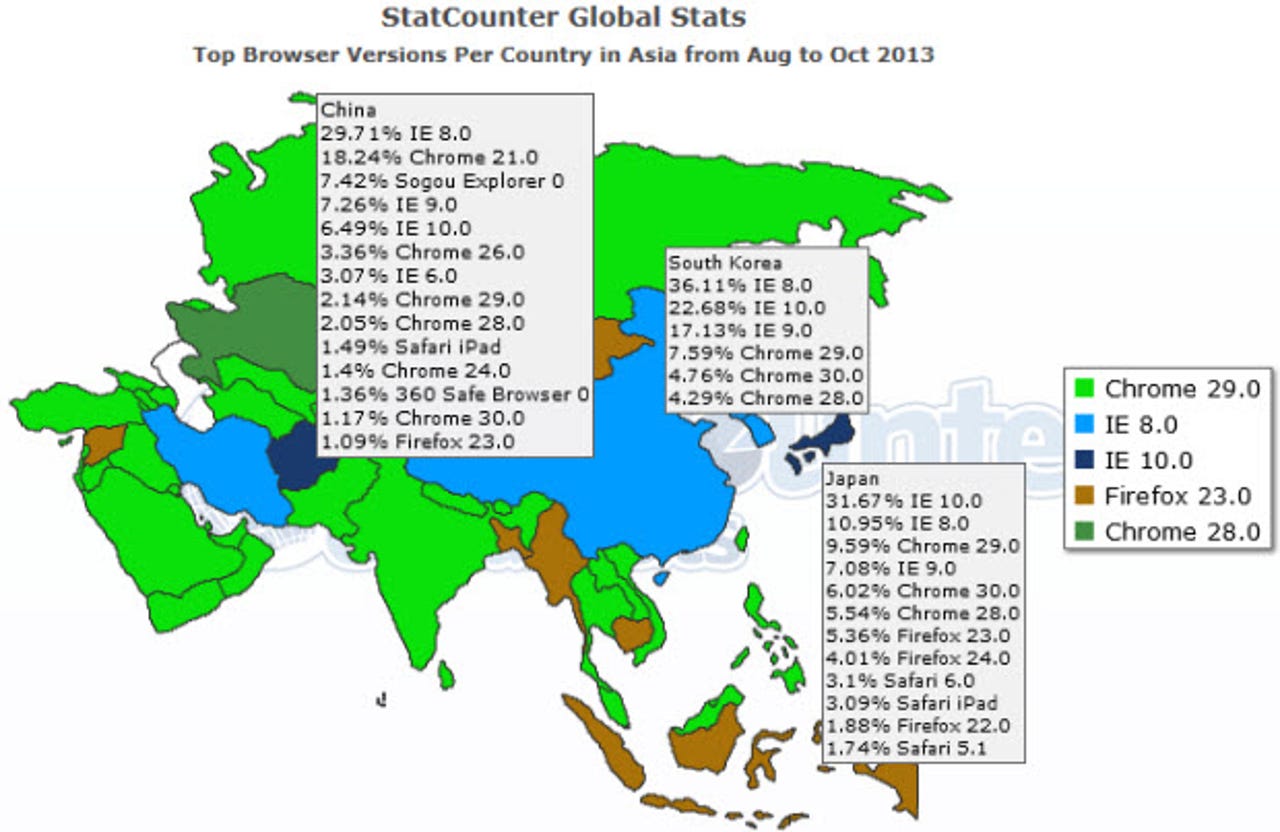South Koreans use Internet Explorer: It's the law

A story in the Washington Post describes how South Korea is a stronghold of Internet Explorer use, ironically because of a law passed in the late 1990s to facilitate ecommerce security.
The government was early on the ecommerce bandwagon, but there were many security concerns. The government dealt with these concerns by passing a law requiring strong online authentication via digital certificates.
A government online system requires users to enter information and receive a digital certificate which South Korean online merchants can use to identify consumers. But the system relies on an ActiveX control, and therefore requires the use of Internet Explorer. The architecture of the system has not changed since it was created. Users can run other browsers, even to access commerce sites in other countries, but to do business with a Korean ecommerce site they must run IE.
As a result, over 76 percent of South Korean users run some version of Internet Explorer, according to StatCounter Global Stats. IE is popular in many neighboring countries, but nowhere near to the degree that it is in South Korea.

Even Microsoft has, for some time, been discouraging the use of ActiveX controls. IE continues to support them, but as a legacy technology. So by creating a legal situation that shuts competitors out of the web browser market, at least for local ecommerce, the law likely weakens the overall security of South Korean users.
IE8 is the most common version in use, as it is in China. This is largely explained by Windows XP users, as version 8 is the last version to work on that operating system. But the IE8 numbers for South Korea are much larger than their share of Windows XP use (22.39 percent). Windows Vista use is low, about 1 percent, so the numbers also indicate that many South Koreans are running Windows 7 with the default Internet Explorer 8.
The reasons to change have been clear enough for years, but they are becoming even more pressing: The Modern UI (Metro) version of Internet Explorer in Windows 8 and 8.1 does not support ActiveX controls. Windows 8 (not Windows RT) users can still run the desktop IE, but clearly Microsoft is moving users and developers away from ActiveX.